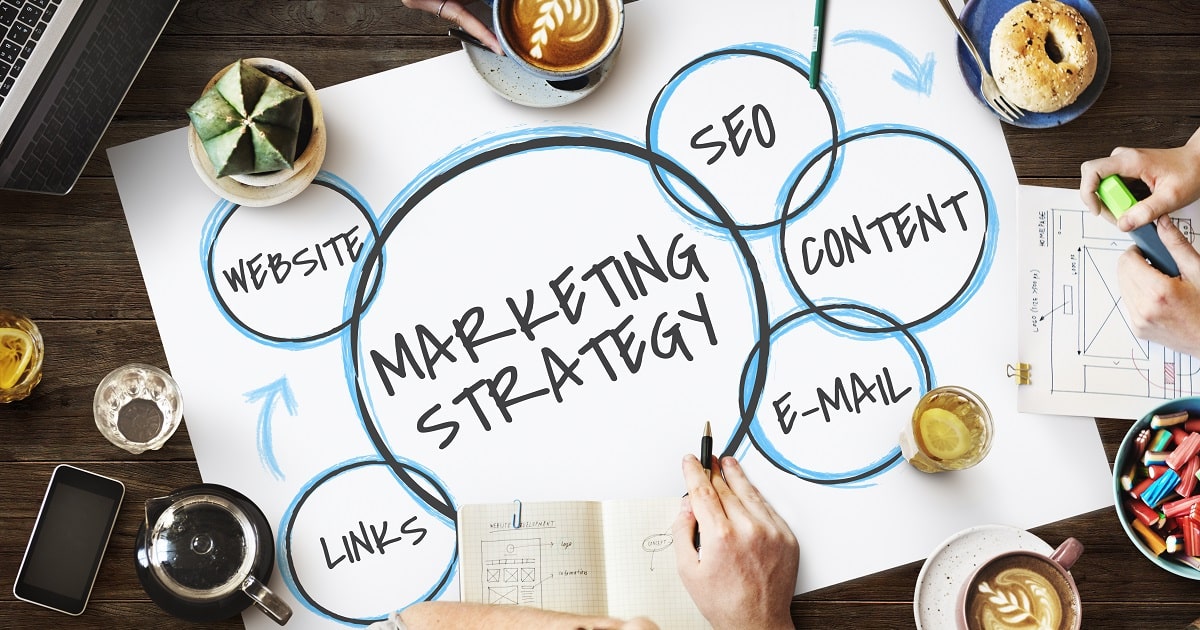
Account Based Data
Article | August 19, 2022
The only constant thing about account-based marketing (ABM) is its evolution. ABM goes beyond plain sales and marketing. It is a strategic and dynamic approach to marketing. It influences B2B buyers who are savvy, digitally native, and educated buying committee members who are otherwise difficult to target, let alone convert.
ABM has evolved from pure one-to-one ABM to one-to-few and one-to-many. We know how ABM is now ABX, which harnesses intent data and programmatic advertising for better results.
Consider a company that wants to implement account-based marketing on its key accounts. If every aspect of this organization revolves around the needs, demands, and requirements of its key accounts, it becomes an account-centric enterprise.
In the first part of this article, we will discuss how an account-based approach on an organizational level can enhance your ABM strategy and help you create relationships that deliver mutual value and growth.
Building an Account-Centric Organization
Transforming an entire organization into an account-centric one is overall an eight-step process. Let us look at the first four:
Two-fold Approach: Check Your Foundation
Examine your foundation before implementing an account-based strategy. Ensure that your tech stack is optimum and that the right employees handle the right responsibilities. Secure the internal buy-in needed to get your ABM program up and running.
Adaption: Make Your Changes Eventually
Make changes to your current strategy only when required and over time. It is unnecessary to completely revamp your organization to align it with your ABM efforts. Ideally, make changes based on your performance. Always focus on the target account so all your teams— demand generation, events, sales, and marketing teams— will have the mindset to target your ICP. The correct approach is to enhance your processes as you go.
Awareness: Train and Educate Your Teams
Your entire team should live and breathe ABM. Align your sales and marketing teams. Other teams should match their processes to best suit the target accounts’ needs. Train and educate your teams, so they can easily adapt to new ABM processes and don’t feel blind-sided.
Analysis: Data Matters a Great Deal
Understand your data. Constantly review, acknowledge, and adjust your processes based on the data at hand. Then, support it with the knowledge of your salespeople. Get their input and advice on which accounts to engage with for optimal results. Then, bring them into the decision-making process for outstanding results.
It’s a Process
Building an account-centric organization requires time and commitment. In the next part of this article, we will discuss important aspects that impact and govern the success of your ABM strategy.
Stay tuned to read the next part of the article.
Read More

Buyer Intent Data
Article | March 6, 2023
ABM is B2B marketing with a higher ROI. It involves going after fewer accounts with a more personalized approach. So, account selection is vital. No matter the budget, if you fumble the ball in the account selection process, your campaign is bound to fail. Guesswork is not an option. You need to stringently research your ideal accounts based on your ICP (ideal customer profile).
In an interview with Media 7, Maliha Aqeel, Director of Global Communications at Fix Network World, talked about the common mistakes companies make while implementing brand strategy. Not budgeting your ABM strategy correctly may be one of them.
"One of the most common mistakes companies make is implementing a brand strategy that isn’t aligned to the organization’s overall business goal."
Businesses that want to transition into ABM are often confused and have several questions about ABM implementation. One of the most important questions they have is about budgeting.
According to a 2016 report by SiriusDecisions, 33% of companies allocated at least 30% of their marketing budgets to ABM. In 2017 that number increased up to 52% — a 57% year over year increase. Their 2019 State of Account-Based Marketing Study showed that the average ABM budget is around $350,000 excluding head count costs.
Going by these statistics, how much should you invest in your ABM strategy? It is common to finalize a strategy way in advance. Allocating budgets to a certain strategy and then deciding to execute ABM can be a pain.
Before deciding on your ABM budget and streamlining your ABM funding strategy, consider the following factors:
Factors to Consider for ABM Funding
Know Your Target Accounts
Business size, decision-makers, departments, positions, interests, demographics, get all the information you can on your target accounts. Make sure you are investing your money in the right target accounts. The bigger your target account, the more stakeholders, and departments there are to manage. This may considerably increase the cost and complexity of your campaign.
Your Advertising Budget
Zero in on the platforms you want to use to engage your target audience. Once you do this, you will get an idea of how much you need to spend to reach your audience on these platforms and get maximum engagement.
Additional marketing techniques like seminars, webinars, conferences, and other events should also be considered in your ABM funding.
Brand Awareness
Gather information on how well your target accounts know your brand. If they already know your brand, then you are saving time and money on creating a new relationship from scratch. However, if your brand does not have a good reputation or reach, creating new leads requires more resources than creating new opportunities.
Your Product’s Complexity
If your product or service complexity is high, you need to work harder to explain its advantages and benefits to convince the stakeholders of your target accounts. This effort is directly proportional to the amount of money you need to spend.
Your Customer’s Needs
The customer’s need for your product or service defines how much you need to spend on advertising. If there is no urgency or if there are many similar solutions that they have used in the past, it becomes difficult to convince them to use your product or service. In short, if they don’t need your product, you need to spend a better part of your budget on impressing them.
Your Competition
The more competitors you have, the more aggressive your campaign needs to be. An aggressive campaign will need a bigger budget. It gets trickier if your competitors already have an established relationship with your target account.
However, if you have the target account’s CLV (customer lifetime value) figured out, you can easily determine how much you need to spend on pursuing a particular account.
Technology Integration
To deliver hyper personalized account-based experiences, you need to find suitable technological platforms to launch your ABM strategy. Platforms like ABM Unified Workforce are an ideal start because of their unified approach to strategy implementation. Consider allocating a part of your budget to technology integrations so you remain up-to-speed with modern implementations like marketing automation. It will also help you optimize your campaign results.
ABM Partners
You need knowledge, human resources, and technology to launch and successfully run account-based marketing campaigns. Alternatively, you can also hire new staff or train the people you already have. Partnering with an ABM agency is also a great option. It not only saves you the time and effort of finding the right marketers, but it also delivers the results and metrics you expect. There are many service providers in the market who can help you kick-start your ABM campaign.
Funding Your ABM Strategy
Now that you know the factors that should be considered for your ABM funding, let us look at some tips to enhance your budgeting.
Identify Target Account CLV
In ABM, less is more, so identify target accounts based on their CLV. It may require three or more years for your ABM campaign to show results, so make sure you periodically assess your target account’s CLV before making big investments.
Harness Technology
Tie your technology budget with sales. Support your goals and streamline your processes by using martech. Collaborating with specialized agencies that have talent and technology can uplift your ABM campaign. Not only do agencies quickly launch your campaign, but they also save you the trouble of recruiting new staff. However, make sure you engage a trustworthy agency with the best technology offerings and expertise.
Get Approval and Support from Stakeholders
Get your stakeholders on your side by justifying your budget with a list of target accounts and their projected value. If you are planning to implement ABM, then you should already have a preliminary version of your ABM funding proposal ready.
Measure Your Performance
Use relationships, reputation, and revenue, the three crucial R’s to measure your performance. These should be your benchmarks and should be assessed periodically.
Conclusion
ABM funding takes effort and time but doing it diligently can bring an increase in ROI, brand awareness, revenue, and confidence in ABM.
FAQ
What is the first step in your ABM funding strategy?
The first step in your ABM funding strategy is to know your target accounts through stringent research.
What are the three important Rs for measuring ABM performance?
The three important Rs for measuring ABM’s performance are relationship, reputation, and revenue.
Read More

Buyer Intent Data
Article | September 11, 2023
Over the last couple years, there has been a paradigm shift in the way customers engage with brands. The effect of this shift has also trickled down to the B2B domain. The marketing strategies that drove sales and revenue pre-COVID no longer work. In response, brands are focusing on revolutionizing their marketing strategies by implementing ABM to optimize their processes and drive a higher ROI. Today, 67% of brands leverage account-based marketing.
Account-based marketing (ABM) is the answer to B2B marketers’ struggles as they navigate through the volatile business situation that the pandemic has created. It uses content personalization, focused targeting of high-value accounts, and aligns the marketing strategy with business goals. Through multiple platforms, brand awareness, and optimized processes, ABM gives a higher ROI than any other marketing strategy.
In an interview with Media 7, Mark Emond, Founder and President of Demand Spring, talked about B2B marketing strategies, content, and technology stacks.
“In today’s long B2B buying journey, buyers are in control and they are interacting across multiple channels. The key is to use data and technology to serve up highly targeted content across channels, tuned to the stage of the buyer’s journey a prospect is in, and what their behavior shows they are most apt to engage in.”
The following five emerging trends in account-based marketing have defined ABM in 2021 and may influence the way it evolves in 2022:
Data Integration
Manually researching target account data requires resources and time. To overcome this challenge, businesses use integrated marketing automation and CRM to collect firmographic data (company size and location), technographic data (target company’s technological choices), behavioral and intent data, predictive analytics, and more to optimize their ABM campaigns.
Marketing automation and CRM keep track of this integration so that brands can segment their prospects effectively. With the help of this integration, they can also find accounts similar to their target accounts. Breaking down internal info silos for cross-departmental collaboration promotes using the valuable customer intelligence that departments have. For example, the product management department can share the customization preferences of the clients they work with. This information can help marketers offer clients just what they want. Data integration helps steer ABM campaigns in the right direction.
New Tools
A wide array of tools to simplify and optimize account-based marketing are available on the market. These tools are used for CRM and marketing automation, intent monitoring, campaign execution, orchestration, measuring and reporting the performance of the ABM campaign, and content syndication. These tools are a part of the martech stack that brands use to find key accounts closest to their ideal customer profile (ICP). They facilitate better resource allocation so that personnel can spend more time on personalized interactions with the target accounts.
B2B businesses prefer using marketing automation platforms that they can customize to fit their needs, like sending email marketing (behavior based email), CRM and sales automation, campaign tracking, account-based digital marketing, and analyzing the performance of their ABM campaign, instead of creating a martech stack from scratch. They choose software that can have numerous integrations, products, and services to better adapt to changing circumstances.
Omnichannel Presence
Omnichannel presence is one of the most influential emerging trends in account-based marketing. Brands need to be present and relevant in the lives of their customers. They do this by using different channels for communication and engagement so that their relationship is deep and meaningful, focusing on understanding their problems and offering effective solutions.
A 2019 study by Gartner found that B2B buyers only spent 17% of their time meeting with potential suppliers. In the current pandemic situation, in-person events and meetings are replaced by AI-powered chat bots, behavior-based emails, personalized website content, and account-based digital advertising so that customers receive a steady flow of information from businesses across different channels. Marketing automation streamlines this omnichannel communication in ABM. However, it can also complicate things for buyers because of the barrage of information they receive. The Gartner study found that 77% of B2B customers found their purchase journey difficult. Striking a careful balance is necessary while integrating new channels into your strategy.
Customized Content
According to a 2020 ABM Benchmark Survey Report, 42% of respondents are personalising their content to increase account engagement and build long-term relationships. Businesses are creating tailored content for specific industries, roles, titles, challenges, and needs. Their content strategy is based on mapping content to suit a specific buyer persona. They engage the buyer at every stage. As one of the most important emerging trends in account-based marketing, customized content is making a huge difference in lead generation, conversion, and retargeting accounts.
The latest tools allow B2B marketers to personalize content based on target accounts’ interests and preferences. Selecting an appropriate content format, topics of interest, and the response to the use of respected industry influencers are mapped to create hyper-personalized content to better connect with prospects, especially decision-makers. Using marketing automation can modernize this process and deliver extraordinary results in terms of conversions and lead nurturing.
Account Metrics
Assessing the performance of an ABM campaign is of paramount importance if marketers want to meet their ROI expectations. To keep up with the emerging trends in marketing and analyze campaign performance, B2B marketers are focusing on account-centric metrics. Generated revenue and the number of accounts gained and retained are mapped using metric tools. Marketers also focus on KPIs like win rate, pipeline velocity, pipeline contribution, and account engagement score to measure the success of their ABM campaigns. As account-based marketing is evolving, it is crucial to map campaign performance so any weaknesses can be taken care of and the campaign can be optimized for better results.
Connecting siloed data sets across the entire content strategy becomes easy because of these ABM-specific metrics. These metrics gather valuable information that impacts purchase decisions as prospects move through the sales and marketing cycle.
How Snapchat’s Bitmoji Brings Traffic to Its Discover Page
Snapchat’s Bitmoji app was launched in 2016 so that users could create their own personalized cartoon avatars. Every user’s Bitmoji appears on the Discover page, where advertisements and brand content are also displayed. This way, traffic comes to the Discover page for Bitmoji but ends up being exposed to brand content and advertisements. This is a great illustration of how personalized content can drive traffic.
Conclusion
B2B marketers are keeping up with the changing and emerging trends in account-based marketing to get the most out of their campaigns. In 2022, ABM is expected to flourish and optimize the demand generation and conversion process.
FAQ
What is the future of ABM?
ABM is expected to become robust with the use of technology like marketing automation to enhance the customer experience.
Why should businesses use account-based marketing?
Account-based marketing motivates marketing and sales teams to work together, identify target accounts, craft campaigns, and align individual accounts through the pipeline.
Read More

Buyer Intent Data
Article | October 7, 2022
In 2018, Demand Gen Report’s ABM Benchmark Survey found that 25% of participating B2B companies used buyer intent data and monitoring tools. 35% of them planned on using intent data within a year. Cut to 2022, and about 99% of B2B marketers are using some form of B2B intent data in their marketing campaigns to target accounts (Source: InboxInsight).
In his exclusive interview with Media 7, Gil Allouche, CEO of Metadata.io, talked about how data helps convert leads.
“With access to valuable data, marketers are focused on leads that are more likely to become buyers. They can also work on targeting their messaging towards these potential buyers.”
Buyer intent data helps in creating a robust foundation for your marketing efforts. Let us look at how intent marketing can help you get the sales and ROI you desire.
Intent Marketing: The New Normal in B2B
Intent-based marketing uses consumer data that signals purchasing intent through consumption of relevant content like blogs and infographics; product comparisons; product reviews; message boards; case studies; and news. Through this data, you can find out what your prospects are looking for, which stage of the customer journey they are in, if they are researching solutions or ready to make a purchase, and what kind of steps you can take to get in front of them.
One of the most important benefits of intent marketing is that it removes the guesswork out of your marketing campaigns and ensures that you are targeting the correct prospects. This targeting can be done through either intent-based branding or intent-based marketing. Intent-based branding decodes the behavior of your target audience online while intent-based marketing harnesses data on the prospect’s buying behavior so you can tailor your marketing offerings accordingly. Consequently, your sales cycle is shortened.
Power-up Your Content Strategy
The biggest challenge B2B marketers like you face today is to cut through all the noise and create an impact on their prospects. Consumers have a host of content options. However, they do not want to consume unnecessary information. When the content is personalized to match their needs and goals, they are more likely to engage with it. Intent data helps you plan your content as it provides you with information on the theme, buyer personas and their behavior, buyer journey maps, content formats, copy, call to action (CTA), and keyword strategy that will best suit your prospect targeting efforts.
An intent-based content strategy can deliver leads while increasing conversion rates and sales. It can give you the competitive edge you need to influence your prospects at the right time.
Drive Sales and ROI
Intent marketing brings in more conversions on landing pages and overall higher traffic and qualified leads to your website. It uses intent information to recruit engaged prospects for sales demos and events. It helps sales teams to effectively rank their leads and accounts so that they can focus on the right leads at the right time and not miss out on any sales opportunities. Your sales teams can execute effective nurture campaigns and create sales pitches with messaging that appeals to a target account’s buying committee. This messaging addresses the account’s pain points and requirements and accelerates the buying decision.
Additionally, intent marketing helps improve customer retention rates and makes it easy for teams to identify cross-sell and upsell opportunities. It takes into consideration the existing customers’ signals to find any at-risk accounts to prevent churn and increase renewal.
Data-driven Marketing Personalization
Intent data makes it easy to personalize your marketing efforts and provides an accurate report of prospective signals, their needs, and interests so that you can segment and categorize them. Once this segmentation is done, you can determine what kind of content needs to be created and displayed for these accounts depending on their position in the buying cycle. With this kind of personalization, your target audience gets to know that you care about them and you can connect with them on a deeper level.
Increase ABM Efficiency
B2B buyer intent data helps your marketing, sales, and customer success teams align their goals so that they can agree on target accounts, establish lead hand-off processes, and diversify investments to target newer, relevant accounts while maintaining the current customer list. Intent data provides marketing intelligence for creating ICP in marketing, messaging, and brand positions for B2B account-based marketing. Additionally, it provides account intelligence for target account list creation, ways to increase engagement, improve lead scoring in ABM and lead nurturing tracks, thus increasing the efficiency of your account-based marketing.
Summing It Up
Intent-based marketing helps B2B marketers like you to understand potential customers so you can find high-value accounts and nurture them through customized content and targeted campaigns.
Read More